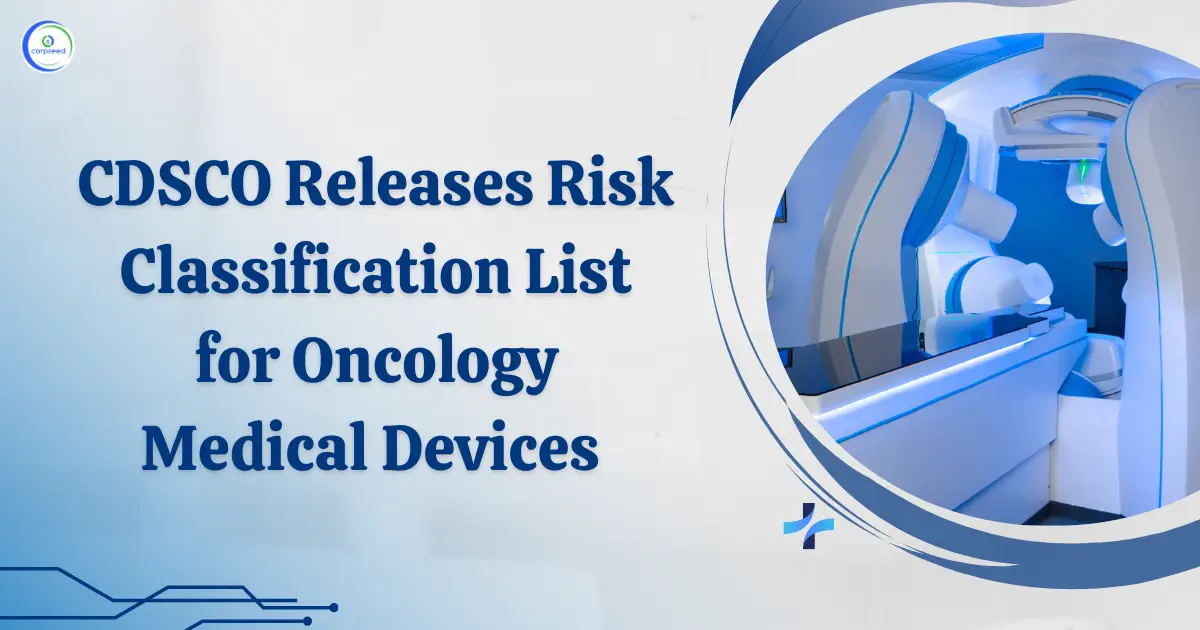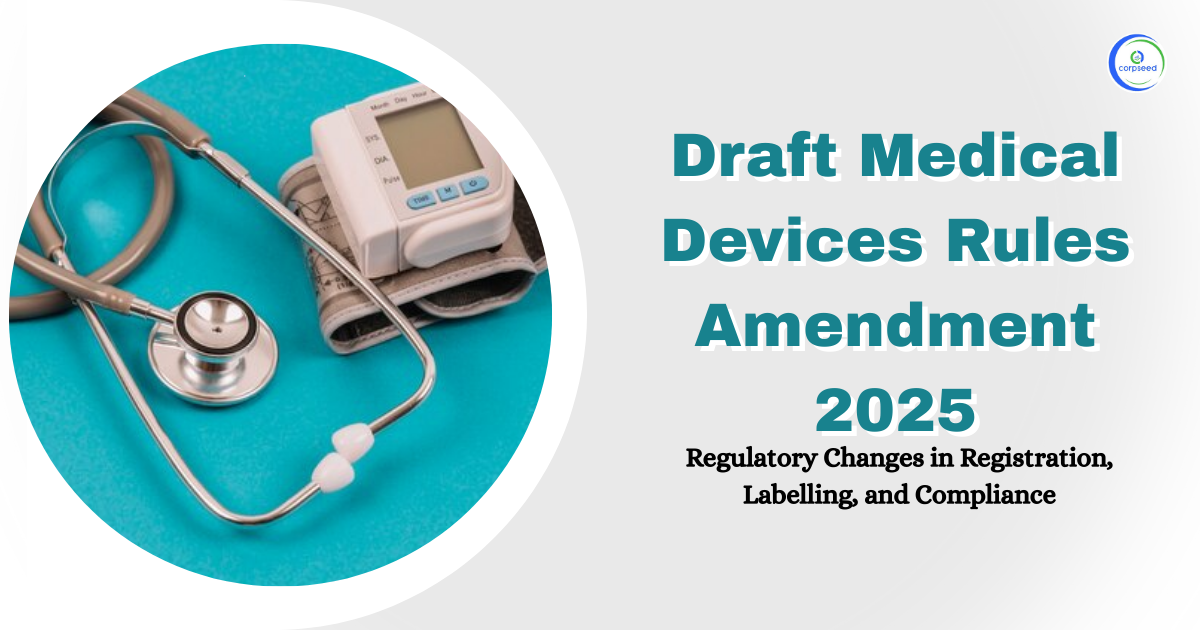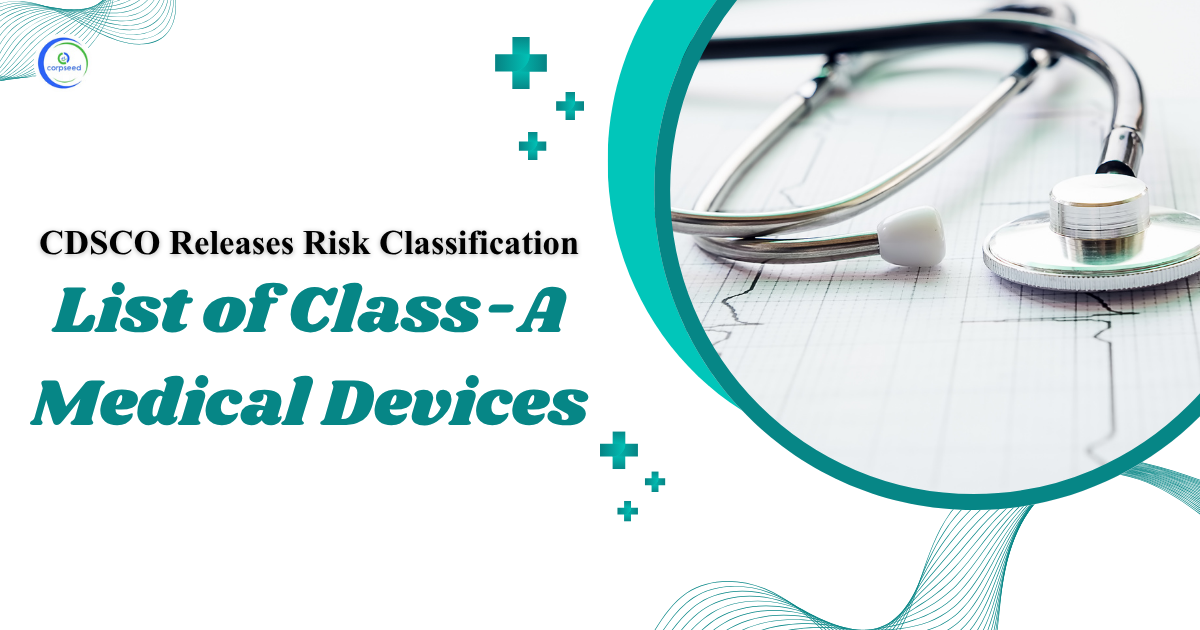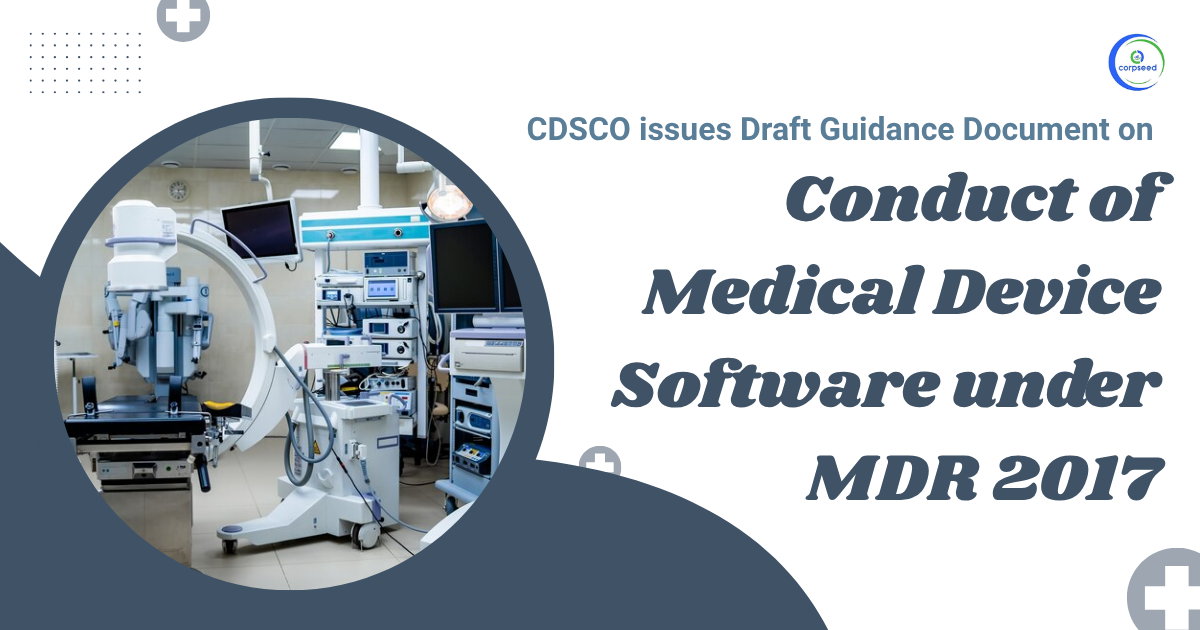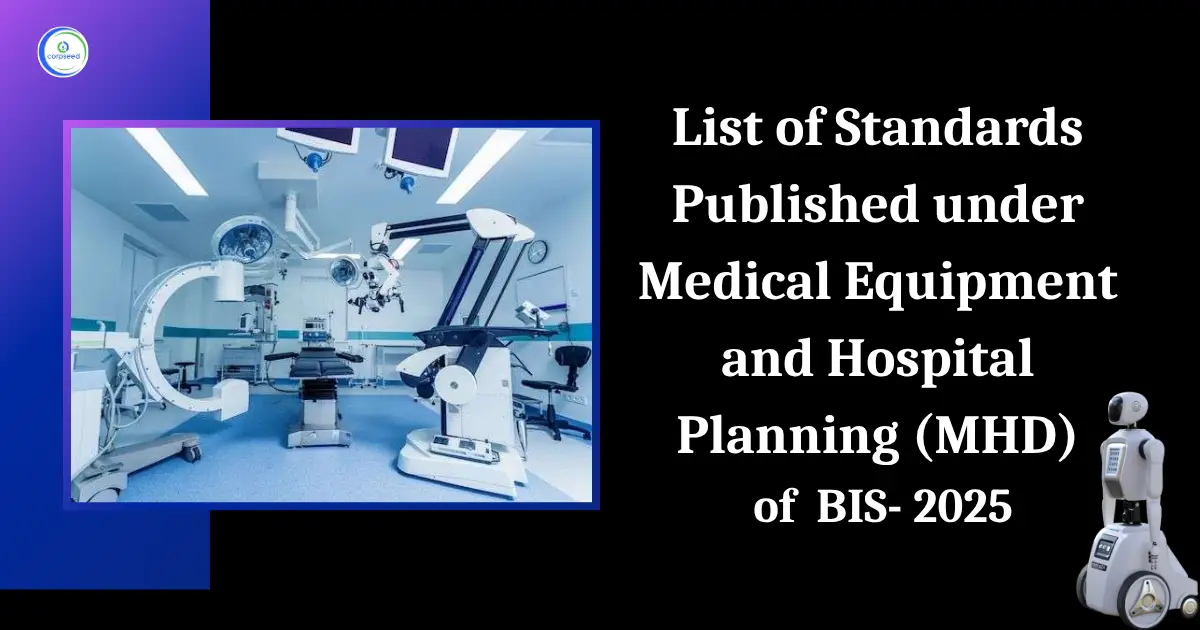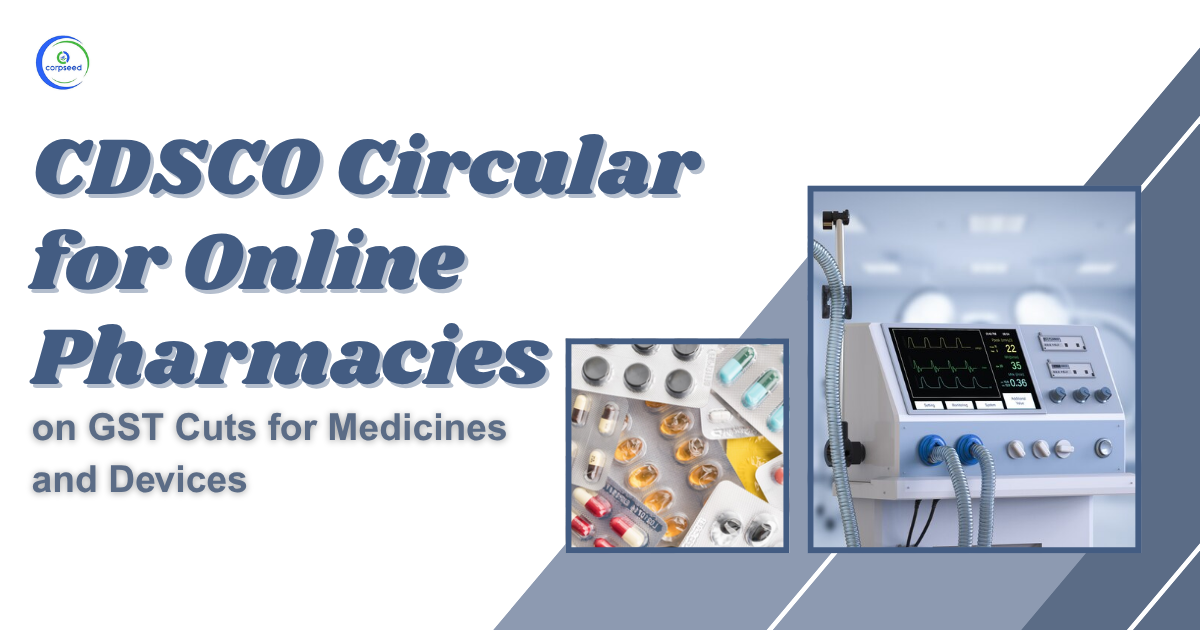A Brief Introduction of OBSTETRICAL AND GYNECOLOGICAL
Obstetrician-gynecologists, or OB-GYNs, are medical professionals with a focus on women's health. The biological processes that the female body goes through include menstruation, childbirth, and menopause. OB-GYNs offer all of this and more in terms of care. Here's an overview of what they do and when you might want to consult one. An obstetrician-gynecologist, or OB-GYN, is an expert in pregnancy and childbirth as well as female reproductive health. Some OB-GYNs provide a broad range of general medical treatments, much like your primary care physician. Some concentrate on the treatment of the female reproductive system.
Table of Contents
- A Brief Introduction of OBSTETRICAL AND GYNECOLOGICAL
- What is a Medical Device?
- Types of Medical Devices in India
- Eligibility Criteria for Medical Devices Registration/Import
- Process & Fee for Medical Devices Registration
- Documents required to be attached
- Time Involved & Validity for Registration
- Re-registration or Renewal of the Registration Certificate
- Post-Compliances after Receiving Registration
- How To Register Any New/Additional Medical Device If Medical Device Registration Obtained Already?
--------------Blog Contact Form-------------
From 1st of October 2022, the said medical devices having risk class A and B will be covered under the licensing regime of CDSCO. Once the devices are under the scope of licensing regime of CDSCO, all the importers and manufacturers of the said devices will have to apply for the license in order to sell their products in Indian Market.
The OBSTETRICAL AND GYNECOLOGICAL category consists of total of 99 medical devices which are classified on the basis of their risk class and intended use. Out of which only class A and class B medical devices will fall under the licensing regime from 1 October 2022. The CDSCO listed medical devices are as below mentioned
| OBSTETRICAL AND GYNECOLOGICAL | |||
| S. No. | DEVICE NAME | INTENDED USE | INDIA |
| 1 | Abortion suction system manual aspirator | A non-sterile, manual, syringe-like device to aspirate fluid from the uterus for the treatment of incomplete abortion, first-trimester abortion, and/or for menstrual regulation. Also used for endometrial biopsy. | B |
| 2 | Birthing bed/table, powered | Bed used during labor and delivery. | A |
| 3 | Cervical anesthesia kit | For providing intracervical nerve block during gyneacological diagnostic tests such as dilation and curettage, small excisional procedures such as endometrial biopsy, or for pain management during labour and/or delivery. This is a single-use device. | B |
| 4 | Cervical anesthesia needle, reusable or single-use | A sharp bevel-edged, hollow tubular metal instrument intended to be used to administe anaesthetic agent to function as an intracervical nerve-block. | B |
| 5 | Colposcope | Special microscope for examination of femalegenital organs (e.g., vagina, cervix). | B |
| 6 | Endocervical aspirator | A collection of devices designed to remove superficial tissue from the mucous membrane lining the cervical canal (endometrium) through manually-powered suction. | B |
| 7 | Endocervical specimen collection kit, no additive | Sterile devices intended to be used for the collection, preservation, and transport of cellular and/or other material collected from the endocervix for culture, analysis, and/or other investigation | B |
| 8 | Endometrial biopsy curette | Surgical instrument used to for the removal of small amounts of endometrial secretions and/or tissue from the uterus for biopsy purposes. | B |
| 9 | Endometrial biopsy kit | For the collection of a tissue sample taken from the lining of the uterus (endometrium). | B |
| 10 | Endometrial cytology brush | A brush used to collect mucosal cell for pathological diagnosis during endoscopic examination. | B |
| 11 | Fallopian tube biopsy everting-balloon catheter | A sterile device intended to be inserted through a hysteroscope to obtain biopsy samples from a fallopian tube for cytological examination. | B |
| 12 | Fallopian tube catheterization kit | A collection of sterile devices for the transuterine catheterization of the fallopian tubes to inject dye or contrast medium for the evaluation of tubal patency. | B |
| 13 | Fallopian tube insufflator | Active invasive device designed to insufflate the Fallopian tubes with a gas [typically carbon dioxide (CO2)] to maintain tubal patency for a procedure. | B |
| 14 | Fixed-diameter cervical dilator, reusable or single-use | To dilate the cervical canal with balloon when uterine does not dilate enough due to inertia uteri. | B |
| 15 | Flexible fibreoptic culdoscope | Flexible endoscope for visual examination, diagnosis, and treatment of urinary bladder and urethra. | B |
| 16 | Flexible fibreoptic hysteroscope | For the visual examination and treatment of the canal of the cervix and the uterine cavity (uterus). | B |
| 17 | Flexible fibreoptic laparoscope | For the visual examination and treatment of the abdominal/retroperitoneal cavity and its organs | B |
| 18 | Flexible fibreoptic mammary ductoscope | For the visual examination and treatment of the mammary duct. | B |
| 19 | Flexible fibreoptic salpingoscope | For the visual examination and treatment of the fallopian tubes (oviducts). | B |
| 20 | Flexible ultrasound laparoscope | For the visual examination, treatment, and ultrasonic imaging of the abdominal/retroperitoneal cavity and its organs. | B |
| 21 | Flexible video culdoscope | For the visual examination and treatment of the female peritoneal cavity and organs. | B |
| 22 | Flexible video hysteroscope | For the visual examination and treatment of the canal of the cervix and the uterine cavity (uterus). | B |
| 23 | Flexible video laparoscope | For the visual examination and treatment of the abdominal/retroperitoneal cavity and its organs. | B |
| 24 | Flexible video mammary ductoscope | For the visual examination and treatment of the mammary duct. | B |
| 25 | Flexible video salpingoscope | For the visual examination and treatment of the fallopian tubes (oviducts). | B |
| 26 | Foetal acoustic stimulator | Uses sound stimuli to assess foetal well-being.This device is used to evaluate the status of the foetus as expressed by, e.g., foetal heart rate changes or foetal acid-base status, in antepartum tests and/or during intrapartum monitoring. | B |
| 27 | Foetal blood sampler | Invasive device to collect fetal blood through uterine cervix. | B |
| 28 | Foetal stethoscope | Mechanical hearing device used to listen to fetal heartbeat. | A |
| 29 | Foetal vacuum extraction cup, reusable or single-use | A device used to extract the head of the fetus with a vaccum cup. | B |
| 30 | Foetal vacuum extraction system monitor | A battery-powered vacuum measuring device that is connected via tubing to the suction line of a foetal vacuum extracting cup, to measure and record data related to a vacuum-assisted delivery such as level of vacuum applied, the number and duration of pulls, and number of pop-offs. | B |
| 31 | Foetal vacuum extraction system, manual, reusable or single-use | To facilitate the delivery of a foetus during vaginal childbirth or Caesarean. | B |
| 32 | Foetal vacuum extraction system, pneumatic | To facilitate the delivery of a foetus during vaginal childbirth or Caesarean. | B |
| 33 | Foetal/maternal multiple physiological parameter simulation kit | To imitate a variety of physiological parameters and conditions (both foetal and maternal) expressed during pregnancy in order to test and calibrate foetal and patient monitoring and recording equipment, check patient cable continuity, or train healthcare providers. | B |
| 34 | Foetal/maternal multiple physiological parameter simulator | To imitate a variety of physiological parameters and conditions (both foetal and maternal) expressed during pregnancy in order to test and calibrate foetal and patient monitoring and recording equipment, check patient cable continuity, or train healthcare providers. | B |
| 35 | Gynaecological bib | A piece of cloth worn by the patient. | A |
| 36 | Gynecological examination/treatment table, manual | To support a woman's body in the appropriate positions during gynaecological examinations. | A |
| 37 | Gynecological operating tabletop | A component of a modular operating table designed as a detachable table top constructed for gynaecological surgical procedures. | A |
| 38 | Gynecological operating table, electrohydraulic or electromechanical or hydraulic | Acitve device designed to support a patient during gynaecological surgical procedures | A |
| 39 | Gynecological scissors, reusable or single-use | To cut tissues during a gynaecological surgical procedure; it is not intended for obstetric use. | B |
| 40 | Gynaecological surgical microscope | To improve visualization of anatomical structures via transmitted light during gynaecological surgery (e.g., on the fallopian tubes). | B |
| 41 | Heel stirrup | A device used during a medical/surgical procedure to steadily hold a patient's foot (feet) by cradling the heel or the whole foot. | A |
| 42 | Hysteroscopic insufflator | A device that sends the gas into the fallopian tube to maintain the patency of the tubes. | B |
| 43 | Hysteroscopic irrigation/insufflation system | Used during endoscopic procedures of the uterus to distend (expand by pressure) the uterus by filling the uterine cavity with a liquid to improve visualization and enlarge the surgical field. It also circulates the fluid to provide irrigation that will remove tissue/debris from the site. | B |
| 44 | Intrauterine cannula, reusable or single use | To aspirate fluid/material from the uterus for treatment of incomplete abortion, first trimester abortion, and/or for menstrual regulation; it may also be intended for endometrial biopsy. | B |
| 45 | Intrauterine haemostatic balloon catheter | A sterile, flexible tube with an inflatable balloon inserted into the uterus and distended with a medium (e.g., sterile water, medical air or other appropriate gas) to reduce postpartum bleeding with pressure. | B |
| 46 | Intrauterine haemostatic suction catheter | Inserted into the uterus to reduce postpartum bleeding through aspiration of blood/debris and induction of uterine contractions. | B |
| 47 | Intrauterine imaging medium catheter | Intrauterine injection of an opaque tracer medium, to facilitate radiography of the fallopian tubes/uterus. | B |
| 48 | Intrauterine imaging medium catheterization kit | Sterile devices intended for the intrauterine injection of an opaque tracer medium, to facilitate radiography of the fallopian tubes/uterus. | B |
| 49 | Laparoscope laser coupler or laser/laparoscope adaptor | To connect the laparoscope to the laser or the laser arm for laparoscopic laser treatment. | B |
| 50 | Laparoscope system, reprocessed | For the visual examination and treatment of the abdominal/retroperitoneal cavity and its organs (laparoscopy). | B |
| 51 | Laparoscope system, reusable or single use | For the visual examination and treatment of the abdominal/retroperitoneal cavity and its organs (laparoscopy). | B |
| 52 | Manual expandable cervical dilator | To dilate the cervical canal with balloon when uterine does not dilate enough due to inertia uteri. | B |
| 53 | Massage oil/cream/gel | Applied to the skin and/or external mucosa to facilitate therapeutic massage. | A |
| 54 | Mechanical foetal heart simulator | To imitate a foetal heart (e.g., foetal heart ultrasound signals) when used in combination with a foetal/maternal multiple physiological parameter simulator in order to test foetal monitoring and recording equipment [e.g., cardiotocograph (CTG)], check patient cable continuity, or to train healthcare providers. | B |
| 55 | Menstrual cup, Hevea-latex | Placed in the vagina to collect blood and cellular debris discharges during menstruation and discharges outside of the monthly menses. | B |
| 56 | Menstrual cup, non-latex, reusable or single-use | Placed in the vagina to collect blood and cellular debris discharges during menstruation and discharges outside of the monthly menses. | B |
| 57 | Menstrual tampon, scented or unscented | Inserted into the vagina to absorb menstrual or other vaginal discharge. | B |
| 58 | Motorized laparoscopic forceps | Active surgical instrument designed for grasping, mobilizing, and suturing tissues/vessels under direct or endoscopic visualization during a surgical procedure. | B |
| 59 | Papanicolaou smear kit or Endometrial sampling kit | Used to collect and prepare pap smears samples in a medical institute. | B |
| 60 | Pelvic examination kit | For performing pelvic examination | B |
| 61 | Pelvimeter | A measuring device used to determine the pelvic dimensions. | B |
| 62 | Pelviscope | An endoscope used for visual examination and diagnosis of pelvis. | B |
| 63 | Perineal warmer | It is useful for pain relief in the vulva after episiotomy. | B |
| 64 | Perineometer | To determine perineal muscle strength through resistance to spontaneous contraction of perineal muscle. Also used to diagnose and treat urinary incontinence and sexual dysfunction through movement. | B |
| 65 | Pudendal anesthesia kit | A collection of sterile devices designed to deliver anaesthetic agent to the external genitalia of humans. | B |
| 66 | Resectoscope | An endoscope used for visual examination, diagnosis and treatment, especially for resection, of tissues. | B |
| 67 | Rigid culdoscope | An endoscope with a rigid inserted portion intended for the visual examination and treatment of the female peritoneal cavity and organs. | B |
| 68 | Rigid fibreoptic hysteroscope | An endoscope with a rigid inserted portion intended for the visual examination and treatment of the canal of the cervix and the uterine cavity (uterus). | B |
| 69 | Rigid mammary ductoscope | An endoscope with a rigid inserted portion intended for the visual examination and treatment of the mammary duct | B |
| 70 | Rigid optical laparoscope | An endoscope with a rigid inserted portionangulus iridocornealis for the visual examination and treatment of the abdominal/retroperitoneal cavity and its organs. | B |
| 71 | Rigid salpingostomy | An endoscope with a rigid inserted portion intended for the visual examination and treatment of the fallopian tubes (oviducts) | B |
| 72 | Rigid ultrasound laparoscope | An endoscope with a rigid inserted portion, combined with an ultrasound probe, intended for the visual examination, treatment, and ultrasonic imaging of the abdominal/retroperitoneal cavity and its organs | B |
| 73 | Rigid video hysteroscope | Acitve device intended to allow visual examination and treatment of the canal of the cervix and the uterine cavity (uterus). | B |
| 74 | Rigid video laparoscope | An endoscope with a rigid inserted portion intended for the visual examination and treatment of the abdominal/retroperitoneal cavity and its organs | B |
| 75 | Suprapubic needle, surgical, reusable or single-use | Percutaneously puncture the lower abdominal wall to provide suprapubic access for surgical repair. | B |
| 76 | Umbilical ligator | Surgical device used for umbilical cord ligation. | A |
| 77 | Uterine injector | Used to inject liquid, drug, or other substance intouterus. It is a reusable device. | B |
| 78 | Uterine manipulator cervical cup/transilluminator | Allow manipulation of the uterus under suction whilst preventing laparoscopic insufflation gas from escaping from the cervix (during hysterectomy). | B |
| 79 | Uterine manipulator, reusable or single-use | Surgical instrument designed to mechanically manipulate the position of the uterus during a gynaecological intervention | B |
| 80 | Uterine packer | A hand-held, surgical instrument used to introduce dressings into the uterus or vagina. This is a reusable device. | B |
| 81 | Uterine probe | For exploring the uterus during a surgical procedure. Used as a component of a uterine manipulator | B |
| 82 | Uterus-supporting pessary | Inserted into the vagina to hold the uterus in place. | B |
| 83 | Vaginal applicator, reusable or single-use | A device designed to apply medication to the vagina. | A |
| 84 | Vaginal dilator | Inserted into the vagina to dilate a narrow vaginal opening due to congenital defect. Can be used during examination, treatment or surgirical procedure. | B |
| 85 | Vaginal douche, reusable or single-use | To deliver a liquid (usually solution) directly into the vaginal cavity for hygenic purpose as a douche. | B |
| 86 | Vaginal douching fluid tablet | A tablet containing various compounds (e.g., sodium bicarbonate, citric acid, aloe barbadensis powder) designed to be dissolved in a vaginal douche. | B |
| 87 | Vaginal lubricant | To lubricate the vagina to facilitate entry of a gloved finger(s) or a device (e.g., a vaginal speculum) during a diagnostic or therapeutic procedure. | A |
| 88 | Vaginometer | A device that measures the length and diameter of vagina. | A |
| 89 | Vaginoscope | For pediatric vaginal examination. To search foreign mattter or bleeding site. | B |
| 90 | Viscera retention paddle or Visceral retainer | Used to hold an organ at proper position (i.e., viscera) while the surgeon performs a suturing procedure (typically internal wound closure). It is also implanted into a surgical site temporarily. | B |
| 91 | Amniotic membrane perforator, reusable | A surgical instrument used to rupture the amniotic membrane to assist in childbirth, without causing injury to the mother or foetus | A |
| 92 | Amniotome, reusable | A surgical instrument used to rupture the amniotic membrane to assist in childbirth, without causing injury to the mother or foetus | B |
| 93 | Birthing/delivery kit | A collection of sterile devices designed for the procedures associated with the birthing and delivery of a newborn | A |
| 94 | Bladder-supporting pessary | Inserted into the vagina to facilitate management of female urinary incontinence and/or to reduce bladder prolapse. | B |
| 95 | Catheter-tip transducer, pressure | A device intended to be incorporated into the distal end of a catheter (not included) to measure pressure. | B |
| 96 | Foetal Doppler system | Active non invasive device to detect foetal heart beats using ultrasound/Doppler technology. | B |
| 97 | Foetal Doppler system probe | Placed on the surface of a pregnant woman's abdomen to detect foetal heart beats using ultrasonic/Doppler technology. | B |
| 98 | Menstrual pad, scented | Held in place externally to absorb menstrual or other vaginal discharge. | B |
| 99 | Menstrual pad, unscented | Held in place externally to absorb menstrual or other vaginal discharge. | A |
Central Drugs Standard Control Organisation:
India is growing as one of the nation's leading the pharmaceutical businesses and is among the top ten nations in terms of the pharmaceutical industry. Several factors such as a large population, growing health awareness, affordable medical facilities, and better research facilities have given rise to the manufacturing and development of pharma business in India. However, with the increasing scope for the growth of the pharma industry in India, there are possibilities for the sale/purchase of medical equipment & device illegally or without jurisdiction. Therefore, the Government of India has established the Central Drug Standards Control Organization (CDSCO), which is the primary legislative body and has been responsible for the regulation, control, and management of pharmaceuticals and medical devices in India apart from the appointment of the Drug Controller General of India (DCGI), and has conferred the responsibility of undertaking assessment, approval and regulation of further compliances(import, export, sale, distribution) in the matters of medicinal drugs and medical devices(including any existing or any new) drugs/devices in accordance with the provisions of the Drugs and Cosmetics Act 1940.

What is a Medical Device?
According to the latest definition as provided under the Medical Devices Amendment rules 2020, as notified on 11.02.2020. However, taking care of circumstances the government has exercised its powers to include more categories by widening the scope of the definition of “Medical Device” under the Act. It states-
"Devices used in general medical practice such as medical apparatus, instruments, implants appliance, etc., which are either used individually or in combination, and are intended to be specifically applied for human beings or animals and are further intended to obtain the desired function by such means and for such purposes as provided below, but is not intended to meet the primary intended action on human body or animals by any pharmacological or immunological or metabolic means-
- Analysis, prevention, observing, treatment, or mitigation of any disease or disorder;
- Analysis, observing, treatment, mitigation, or support for any injury or disability;
- Examination, replacement or alteration, or support in findings of the anatomy or a physiological process;
- For supporting or sustaining life;
- Decontamination of medical devices; and
- Conception-related equipment’s & devices.
Therefore, every manufacturer or importer or both of any medical devices in India shall be required to obtain registration as per the provisions of the Drugs and Cosmetics Act 1940. Any failure to comply with the same may invite legal action including penalty & prosecution under the Act.
Types of Medical Devices in India
Provisions related to the import, manufacture, sale & distribution of medical devices are regulated under the provisions of the drug and cosmetics Act 1945. Under the New Medical Rules 2017, all medical devices have been classified into four different categories depending on their usability & risk involved as provided below.
- Class A:- Low-risk devices like a thermometer, tongue depressors, etc.
- Class B:- Low moderate risk like Hypodermic Needles, suction equipment, etc.
- Class C:- Moderate high-risk devices like Lung ventilators, etc.
- Class D:- High-risk devices like Heart valves, implantable devices, etc.
Where Class A & B devices are considered to be less risky and moderate devices, for which the application to manufacture has to be filed to the State Licensing Authority. Whereas Class C &D are considered to be high and very High-risk devices and the application for these has to be filed to the Central Licensing Authority of India.
Eligibility Criteria for Medical Devices Registration/Import
The provisions related to activities such as Import, manufacture, sale and distribution of medical devices have been regulated under the provisions of the Drugs & Cosmetic Act 1940 & Rules 1945. Therefore, any person/firm/enterprise, etc. holding a wholesale drug license and/or manufacturing license issued under the Drugs and Cosmetics Act, 1940 and Rules 1945 could make an application for Registration and import of medical devices into India.
Process & Fee for Medical Devices Registration
Types of Medical Devices Registration
- Registration/Import of any existing medical device;
- Registration /import of any new medical device
Step 1: Determine Whether Your Medical Device Is Under Notified List or Not
The CDSCO authority has provided a list of notified medical devices that need to compulsorily obtain registration under the Drugs and Cosmetics Act 1940 and in accordance with Medical devices rules 2017. However, there may be any medical devices that have not been expressly notified by the CDSCO authority, or in the case of new medical equipment, the manufacturer/importer shall be required to obtain a NOC in such cases. For instance, Blood Grouping Sera Ligatures, Sutures, Staples Intra-Uterine Devices (Cu-T), Condoms, Tubal Rings, Surgical Dressing, Umbilical Tapes, Blood / Blood Component Bags do not need registration, whereas devices such as spinal needles, cochlear implants, syringes, and needles, heart valves, endotracheal tubes and catheters among others should undergo registration provides with the CDSCO.
Step 2: Appoint an Authorized representative (in case of Foreign Entity)
For a foreign business manufacturer entity, it shall be necessary to appoint an authorized business entity in India, who shall be the contact person for the inspection authorities during the process, assist in device approvals, registrations process, and vigilance adverse event reporting. The Indian Authorization should hold a wholesale drug license in forms 20B& 21B.
Step 3: Fill out the application form for Medical Device Registration
In the next step, the manufacturer/importer for MD shall be required to submit the registration form of a regulatory dossier, along with all the prescribed documents along with the prescribed fee on the CDSCO portal to the DGCI (Drugs Controller General of India) by logging on to the online CDSCO portal https://cdsco.gov.in/opencms/opencms/en/Home/ and signing into the portal.
Following forms along with applicable govt. fees have been provided below, which shall be required to be paid through payment challan-
| Applicant Type | Class of MD | Application Form | License Form |
| Importer | A,B,C,D | MD-14 | MD-15 |
| Manufacturer | A B | MD-3 | MD-5 |
| Manufacturer(Loan License) | A B | MD-4 | MD-6 |
| Manufacturer | C, D | MD-7 | MD-9 |
| Manufacturer(Loan License) | C, D | MD-8 | MD-10 |
However, in the case of new equipment or medical device-
| Application Type | Class of MD | Application Form | License Form |
| Importer Clinical Investigation | A,B,C,D | MD-22 | MD-23 |
| Import License | A,B,C,D | MD-26 | MD-27 |
| Test License(for importer) | A,B,C,D | MD-16 | MD-17 |
| Manufacturer (Clinical investigation) | A,B,C,D | MD-22 | MD-23 |
| Manufacturer License | A,B,C,D | MD-26 | MD-27 |
| Test License | A,B,C,D | MD-16 | MD-17 |
Further, each application shall be supported with the list of documents and the requisite fee as provided in the online portal of CDSCO-
| Type of License | Class of Device | Applicable Regulation | Govt. Fee |
For Manufacturing/Loan License
|
A or B; | 20(2) | Rs. 5000 Rs. 500 |
For Manufacturing/Loan License
|
C or D; | 21(2) | Rs. 50,000 Rs. 500 |
For Import License(other than IVD)
|
Class A | 34(2) | 1000 Dollar 50 Dollar |
Import License(other than IVD)
|
Class B | 34(2) | 2000 Dollar 1000 Dollar |
Import License (in IVD)
|
Class A or B | 34(2) | Rs. 1000 Rs. 10 |
Import License (other than IVD)
|
Class C or D | 34(2) | 3000 Dollar 1500 Dollar |
Import License(in IVD)
|
C or D | 34(2) | 3000 Dollar 500 Dollar |
Step 4: Obtain Certificate of Registration in Prescribed form
Once the application is submitted on the CDSCO portal, the DGCI registration authority may send a query through an inquiry letter to the manufacturer or from the authorized representative of the importer, along with the timeline within which the query should be answered and sometimes, may also ask for a technical presentation On satisfaction the authority may issue a license in such form as provided in the above list. After obtaining registration, the manufacturer or his authorized representative may apply for an importer license.
Documents required to be attached
- Form 40
- ISO 13485 certificate
- Full Quality Assurance Certificate
- CE Design Certificate
- Undertaking that all information provided is authentic
- Either a Free Sale Certificate or Certificate from the Foreign Government
- Certificate of Marketability from GHTF (Australia, Canada, Japan, the European Union, and the United States);
- Plant Master Report
- Device Master File
Time Involved & Validity for Registration
If the DGCI doesn’t ask for a Technical Presentation or Subject Expert Committee (SEC) audit, it takes around 6-9 months to obtain a Medical Devices Registration. In cases where Technical Presentation or Subject Expert Committee (SEC) audit, is required, it may take additional 3-6 months.
Once obtained the Registration Certificate shall be valid for a total period of 3 years from the date of issue of registration unless suspended or cancelled by the DGCI authority for proper causes.
Re-registration or Renewal of the Registration Certificate
The application for renewal of the MD registration certificate shall be made at least nine months from the expiry of the registration certificate. Though there are no additional requirements for the renewal of registration, it shall be necessary for the certificate holder to provide a copy of the Plant Master File (PMF) and Device Master File (DMF), where there are no changes in the PMF and DMF,
Post-Compliances after Receiving Registration
Though there are not many compliances in place about the registration certificate, it shall be compulsory for the certificate holder to-
- In case of any change that has taken place about the constitution of the firm and/or address of the registered office/factory premises, the MD manufacturer/authorized representative of the importer to intimate the licensing authority regarding the same in writing;
- In case any such change has taken place, the existing registration certificate shall be valid for a maximum period of three months from the date on which the change has taken place, and during this time, the manufacturer/authorized representative shall be required to obtain a fresh Registration Certificate;
How To Register Any New/Additional Medical Device If Medical Device Registration Obtained Already?
In case an importer wants to obtain registration for manufacturing of any additional manufacturing device, then such person shall be required to obtain an endorsement to the existing Registration Certificate along with the prescribed documents holding that manufacturing of an additional device is being undertaken in the manufacturing site as provided in the registration certificate along with a fee of 1000 dollars fee for each additional device.
Drug License
A drug license is an official permission granted to individuals or companies that manufacture, distribute, and sell drugs in India. It ensures adherence to the safety and quality standards of the regulatory authorities that ensure public health.
Medical Devices Import/Manufacturing
CDSCO online registration is a process that ensures that all the drugs, medical devices, and cosmetics in the market are safe, reliable, and must have passed quality standards. Importers, manufacturers, and others must register under the CDSCO for a certificate if they are working in this field.
Medical Devices Import
The CDSCO is responsible for medical device registration in India. This registration guarantees that all devices are safe, of high quality, and comply with regulatory standards. This registration not only protects patients but also supports global trade.
This portion of the site is for informational purposes only. The content is not legal advice. The statements and opinions are the expression of author, not corpseed, and have not been evaluated by corpseed for accuracy, completeness, or changes in the law.
BOOK A FREE CONSULTATION
Get help from an experienced legal adviser. Schedule your consultation at a time that works for you and it's absolutely FREE.




